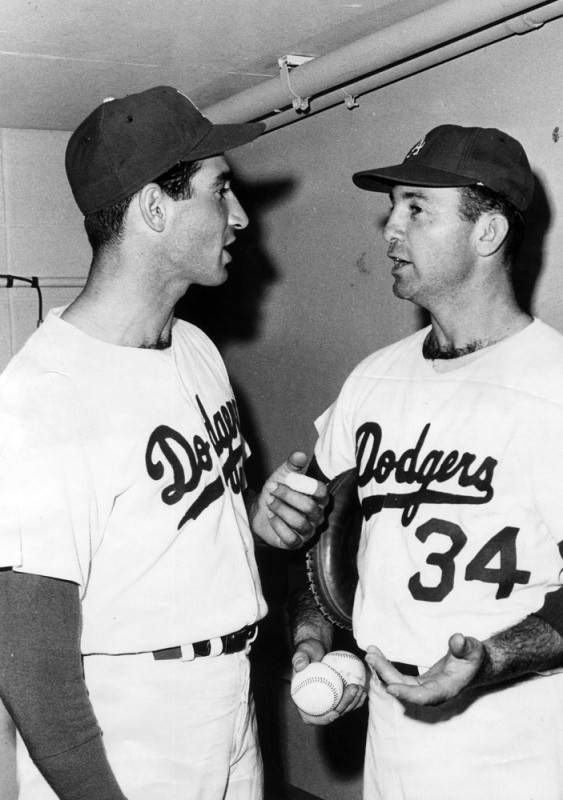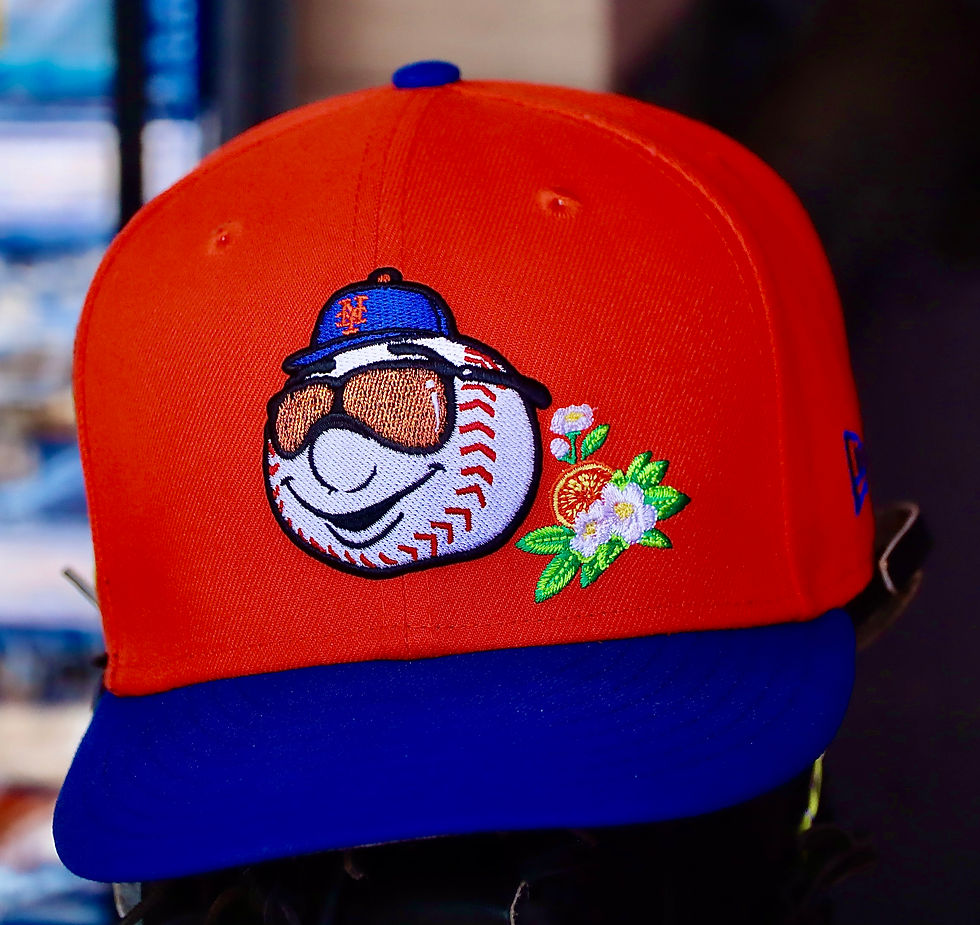Dugout Firsts: From Arepas to Bagels, Finding Pride in Baseball Heritage
- Mark Rosenman

- Aug 20, 2025
- 7 min read

Last night in Washington, inside Nationals Park, baseball carved out a little history. Just a shade over two miles away from the ballpark stands an equestrian monument to Simón Bolívar, Venezuela’s great liberator. Cast in bronze, sword raised skyward, it’s a powerful salute to a nation’s pride. And in its own way, what unfolded on the field was just as symbolic: for the first time in Major League history, two managers from Venezuela squared off against one another. On one side, Mets skipper Carlos Mendoza. On the other, Nationals interim boss Miguel Cairo, who, in case your Mets trivia is rusty, spent 257 games wearing the orange and blue.

That image of Bolívar with his arm raised feels oddly fitting here, because for Venezuelan baseball, this matchup wasn’t just another night in the dugout. It was a milestone, a marker of how far the game has reached and the doors that have opened since Ozzie Guillén became the first Venezuelan to manage in 2004.
And watching that play out got me thinking about my own roots. About my Jewish heritage. About how many Jewish men have had the honor of managing at the big-league level. And, perhaps most intriguing of all, when two of them finally wound up staring each other down across the dugout.
As someone who’s spent the last few summers coaching a U17 Maccabi team (back to back Gold medals in case you are keeping track) where the strategy meetings are equal parts baseball theory and “did anyone remember to pack the cleats?” this kind of history lands with extra weight. Representation matters, pride matters, and in baseball, those rare firsts always find a way to echo.

Which brings me, naturally, to another corner of baseball’s crazy quilt, my own heritage. If Venezuelans can puff out their chests watching Mendoza and Cairo swap lineup cards, then it’s only fair that I stop and ask: how many members of the tribe have had the keys to the dugout? And more importantly, when did two of them finally glare across at each other and think, “Oy, here we go”?
The answer, as it turns out, is a very short list but a proud one. Eight men in all. . Just eight. Which, if you’re counting at home, is two short of a minyan.
Now, for those of you who didn’t grow up at Hebrew school with a teacher who could yell at you in three languages, (Yes Mr. Richter I am talking about you) a minyan is the quorum of ten Jewish adults you need to start certain prayers. In other words, it’s the original “minimum roster requirement.” Without ten, the service can’t begin, kind of like trying to play a doubleheader with only seven guys showing up.
And just like that, baseball had its own “roster” of Jewish managers, beginning way back in the 1870s with Lipman Pike,
Lipman Pike - who wasn’t just one of baseball’s first Jewish stars—he was one of the game’s first stars, period. If there had been a Hall of Fame in the 19th century, Pike would have been an automatic pick. Known as the “Iron Batter,” he led the fledgling professional leagues in home runs for three straight seasons and even once crushed six in a single game. In 1872, he hit over 17 percent of all the homers in the league,a record that wouldn’t be touched until Babe Ruth came along almost 50 years later.
Pike wasn’t just a slugger; he was also a trailblazer. He became the first Jewish manager in organized baseball, and he helped pave the way for the professionalization of the sport, all while navigating the prejudices of the era. Paid under the table? Accused of disloyalty? Sure, but he also earned the love and admiration of Brooklyn’s Jewish community and set a precedent for the generations of Greenbergs and Koufaxes to come.
Even today, his story is remarkable enough to fill a book or maybe several. Statistically, culturally, historically, he belongs in Cooperstown. Pike was the first professional Jewish player, manager, and umpire a pioneer whose impact on the game goes far beyond the numbers.

Andy Cohen – From the sandlots of El Paso to the Polo Grounds, Cohen briefly played for the New York Giants, proving that brains, hustle, and a keen eye for talent can sometimes outweigh sheer brawn. Not flashy, but steady like a knish that never goes out of style. Cohen also had a brief managerial moment with the Philadelphia Phillies in 1960. After manager Eddie Sawyer stepped down following a season-opening loss, Gene Mauch was hired as his replacement, but Cohen managed one game before Mauch could join the team. Leading the Phillies to a 5–4, ten-inning victory over the Milwaukee Braves, Cohen left the majors with a perfect managerial record—1–0—the only game he ever officially managed.

Lou Boudreau – Yes, that Lou Boudreau, Hall of Famer and Cleveland’s player-manager, who led the Indians to the 1948 World Series title. Smart, intense, and capable of plotting double plays while writing the lineup card with one hand and reading the morning paper with the other.

Norm Sherry – More than a catcher, more than a mentor. Sherry helped unlock fellow Jewish teammate Sandy Koufax’s Hall of Fame magic. When he got his shot as a manager, it was the culmination of decades spent in the trenches, showing that the smartest players often make the sharpest managers.

Jeff Newman – After his playing career ended, Newman returned to the A’s as bullpen coach under Jackie Moore. When Moore was dismissed on June 28, 1986, Newman stepped in as interim manager until Tony La Russa took over, finishing with a 2–8 record. Born in Fort Worth, Texas, Newman converted to Judaism in 1970 through an Orthodox ceremony.

Brad Ausmus – The Ivy-league-smart catcher every pitcher trusted, Ausmus managed both Detroit and Anaheim with brains to spare. A thinking man’s manager, capable of analyzing sabermetrics while also coaching a player through a tough at-bat.

Bob Melvin –The current Giants manager has always been a steady hand in a sea of chaos, Melvin has been a model of consistency, winning three Manager of the Year awards and quietly reminding everyone that leadership often works best when it’s effective rather than flashy.
Gabe Kapler – Fitness guru, deep thinker, occasional avocado-toast philosopher Kapler brought a modern, holistic approach to the dugout, first in Philadelphia, later in San Francisco. He’s a manager who thinks as much about player wellness as lineup strategy, proving there’s more than one way to lead a team.

So there you have it: eight Jewish managers in nearly 150 years of professional baseball. A small fraternity, sure, but one with a Hall of Famer, a World Series ring, a couple of brainiacs, and even a guy who can explain the importance of core strength while filling out a lineup card. And just like Mendoza and Cairo the other night in Washington, there eventually came a day when two Jewish managers faced off across the diamond. As someone who has spent years chronicling firsts in baseball, including my You Never Forget Your First book series, I know better than most the importance of a milestone moment, and this one for me should be every bit as historic for Jewish baseball fans as Mendoza versus Cairo was for Venezuelan pride.
Granted, this moment happened 11 years ago, and yet shockingly not a single recap of the game mentions it. But some things deserve to be remembered. So let me take you back to the afternoon of Monday, May 26, 2014, when Bob Melvin’s Oakland A’s faced off against Brad Ausmus and his Detroit Tigers in the first of their 87 meetings. On that day, two Jewish managers of the eight in all, mind you finally stood across the diamond from one another, giving the fans a quiet, historic first that somehow slipped under the radar of every mainstream recap.
On May 26, 2014, at the Oakland Coliseum, the Oakland Athletics handed the Detroit Tigers a 10-0 defeat. The A’s lineup erupted early, with home runs from Brandon Moss, Kyle Blanks, Josh Donaldson, Yoenis Céspedes, and Derek Norris combining to put the game out of reach. Rajai Davis, Jed Lowrie (yes that Jed Lowrie) and Cespedes were future Mets who played in that game. Drew Smyly struggled on the mound, giving up six runs in five innings, while another future Met Tommy Milone’s steady pitching kept Oakland in control.

Between the 2014 and 2019 seasons, Brad Ausmus and Bob Melvin found themselves on opposite sides of the diamond a remarkable 87 times. Their head-to-head battles came during Ausmus’s tenure with the Detroit Tigers (2014–2017) and later the Los Angeles Angels (2019), while Melvin was steering the Oakland Athletics (2011–2021). In those encounters, Melvin gained the upper hand, posting a 48–39 record over Ausmus, good for a .552 winning percentage compared to Ausmus’s .448.
Between the 2014 and 2019 seasons, Brad Ausmus and Bob Melvin faced off a remarkable 87 times, with Melvin posting a 48–39 edge over Ausmus, a .552 winning percentage compared to Ausmus’s .448. These matchups came while Ausmus managed the Detroit Tigers and later the Los Angeles Angels, with Melvin at the helm of the Oakland Athletics.
Interestingly, Gabe Kapler, another prominent modern manager, never faced Ausmus in a regular-season game. Kapler did, however, clash with Melvin during his tenure with the San Francisco Giants, going 29–43 against Melvin’s Padres in 2022 and 2023, giving Melvin a .597 winning percentage in that matchup. In a twist of fate, Melvin would go on to replace Kapler as Giants manager after the 2023 season, continuing his pattern of competitive and cultural influence across multiple dugouts.
What made that first game more than just a quirky stat is the undercurrent of heritage and identity both men carried into those matchups. Ausmus, one of the few Jewish managers in MLB history, and Melvin, who has also proudly spoken about his duel Jewish-Italian roots, each represented more than just their clubs. For fans, those dugout showdowns became a reminder of how baseball has long been a place where ethnicity and pride intersect with competition.
Statistically, there was nothing historic about the day—no hitting streaks, no strikeout milestones, no cycles, no perfect games, no triple plays. But for Jewish fans of the game, the significance was elsewhere. Watching two Jewish managers, Bob Melvin and Brad Ausmus, face each other for the first time in baseball history brought a sense of pride and connection to heritage that transcended the box score. In a sport where milestones and stats often dominate the narrative, this matchup reminded fans that representation and identity can be just as meaningful as records. And really, that’s the same heartbeat that makes the World Baseball Classic so beloved, it tugs at our instinctive pride in heritage, showing us that sometimes the flag on the jersey can matter just as much as the name on the back.





Comments